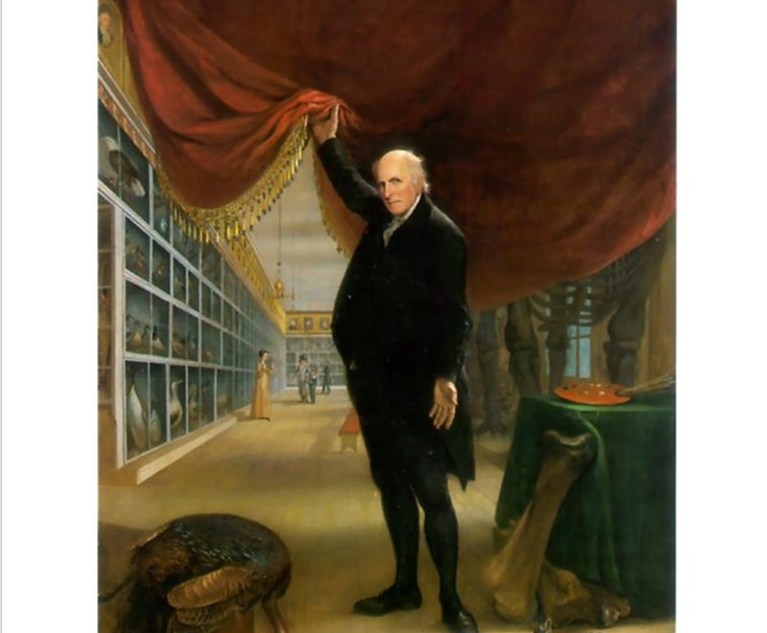Charles Wilson Peale (1741-1827) knew almost everything about almost everything—and he did almost everything. He was an artist, politician, naturalist, inventor, educator and farmer.
Born in Maryland, he was apprenticed at age 13 to a saddle and harness maker, learning also watchmaking, silversmithing and wood carving. Apprenticeship in colonial America was a contractual relationship often overseen by a local court in which for a stated time the master craftsman provided food, shelter and instruction, and the apprentice agreed to work without pay. The arrangement was somewhat similar to that experienced by Peale’s father who was an indentured servant, having been convicted in London of theft and forgery, sentenced to death, which was then commuted in 1735 in return for agreeing to be shipped to Maryland to do designated work for a specified number of years.
This content has been archived. It is available through our partners, LexisNexis® and Bloomberg Law.
To view this content, please continue to their sites.
Not a Lexis Subscriber?
Subscribe Now
Not a Bloomberg Law Subscriber?
Subscribe Now
LexisNexis® and Bloomberg Law are third party online distributors of the broad collection of current and archived versions of ALM's legal news publications. LexisNexis® and Bloomberg Law customers are able to access and use ALM's content, including content from the National Law Journal, The American Lawyer, Legaltech News, The New York Law Journal, and Corporate Counsel, as well as other sources of legal information.
For questions call 1-877-256-2472 or contact us at [email protected]


 C.W. Peale, The Artist in His Museum, 1822 (Public Domain)
C.W. Peale, The Artist in His Museum, 1822 (Public Domain)




